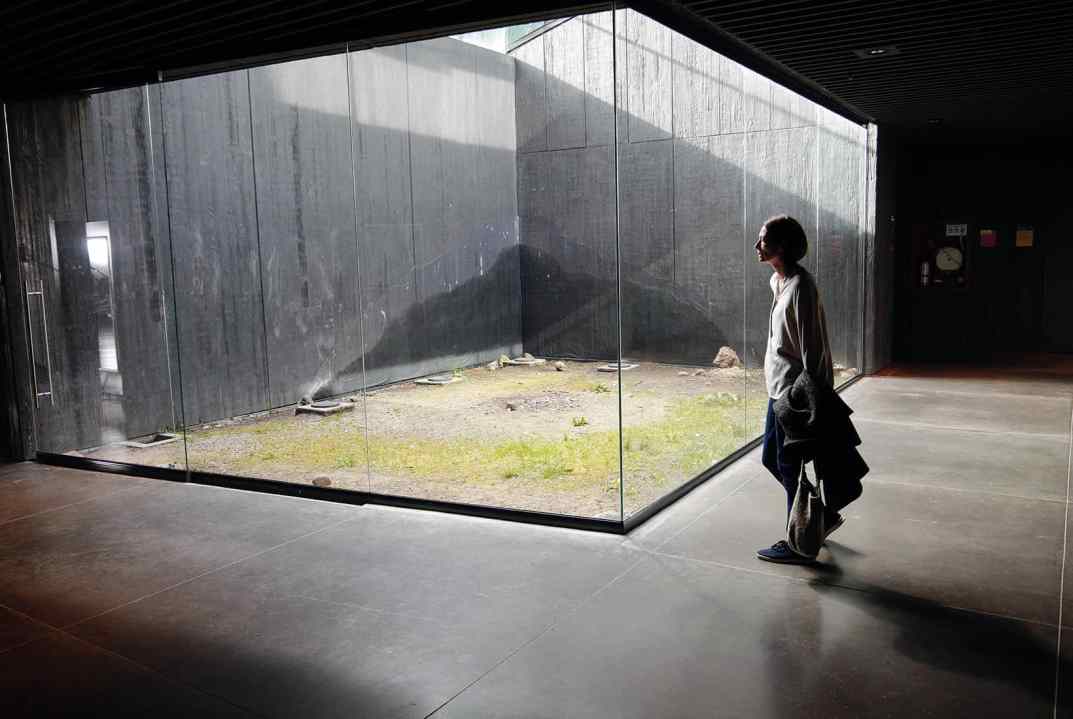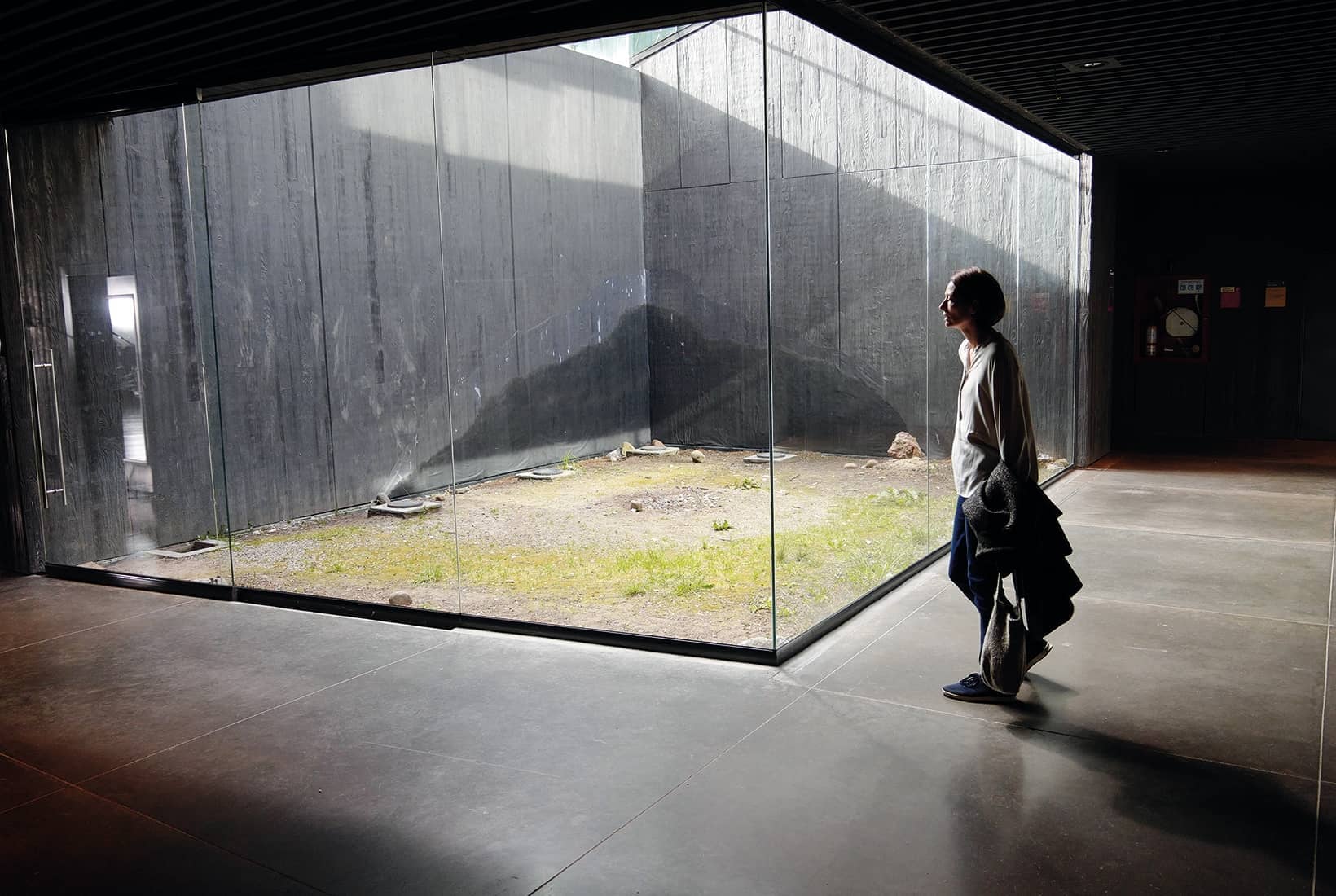There always comes a moment in the films of Apichatpong Weerasethakul where you’re forced to scoop your brain up from the floor. In his last, Cemetery of Splendour, this occurs at the point where the sky is invaded by a colossal blimpish amoeba. You stare. Blink. Adjust eyes. It slowly dawns that you’re peering into a crystal-clear lake, cloudy heavens and whirring mitochondria in blissful, cosmic coexistence.
Man, however, is weak. And the first time I was introduced to his films, one of the most significant, sensual, startling, transcendent bodies of work by any director this century, I fell asleep.
‘Amazing,’ beams Weerasethakul over Zoom. ‘Even I slept in my films sometimes. It’s normal…You are always conditioned to see the film and be awake but why? Why can you sleep to music but not cinema?’ His commitment to sleeping through his movies has extended to him nodding off during his own premières at Cannes. The juries seem not to have noticed; he’s won four times.
My excuse was that I’d been battling through a 24-hour, all-night screening of his entire oeuvre at Tate Modern. Fuelled solely by two Lion bars and a banana, I would doze off in one film, and wake up in another, while on screen two lovers were themselves starting to drift off.
That morning I got my tongue around that name: ‘A-peach-a-pong We’re-ascetical’; learn it. Learn, too, and be reassured, that his are not the kind of art-house films whose claims to profundity rest on being long, slow and boring. Stuff happens: reincarnations, transmogrifications, erections. In Tropical Malady a man becomes a tiger and his lover takes advice from a talking baboon. In Uncle Boonmee a princess has sex with a fish; try sleeping through that.
Yet, people do nap throughout. In Boonmee mauve mozzie nets shroud curled up monks in gauzey coffins. In his latest, Memoria, which opened in cinemas this week, we watch what transpires to be the body of Tilda Swinton as she’s suddenly awoken by a pregnant thud.
His commitment to sleeping through his movies has extended to him nodding off during his own premières
Sleep is important because dreaming is vital. ‘We possess the best cinema: our own images at night,’ he has said. Film’s future, he insists, rests in us decoding the brainwaves of sleep into images. ‘I always write down my dreams when I can,’ he says. ‘Maybe because I wake up multiple times and I’m always happy to know that I dream as I suffer a lot from insomnia.’ Behind him half a dozen bottles of pills line the shelf.
When he was a kid, a friend revealed to him that he saw a man with red pupils hovering above his bed. The phantasmagoric feel of his films, however, goes beyond the spectral beasts and laser-eyed yetis that flow directly from his childhood and popular Thai culture. The uncanniness of everything he shoots is embedded in the cut of the film itself. In the dream logic of the edits. The diptych forms. The way he might slice a love story in two, plunge us into a cave and spew us out into a whole new tale in the jungle. His delicate confusion of time and place. The way the camera will always, having been stock-still for ages, mysteriously start to float (he spends a lot of time thinking about exactly when to do this).
Sound is crucial. Dialogue is always nestled within an ASMR-ish hum, never rising above the chatter of trees, cars, fans, birds, streams. And then there is the tangible hiss of the jungle, which, in Blissfully Yours, seems almost electrically charged. Is this really what jungles sound like?
‘It is! Nature can sometimes trick you. It can sound like machines. That’s what fascinates me about jungles,’ he says. ‘In Memoria, too, the sound is equally strong if not even stronger than the image. The theatrical experience allows you to do it… It’s really physical. I really believe that when you are hit with sounds your organs and cells react.’ To make sure your kidneys feel the doofs, Memoria will only ever be shown in cinemas.
Here also speaks a victim of ‘exploding head syndrome’. This experience provided the characteristically minimal plot for Memoria, which sees Swinton wandering Bogota, Colombia, trying to unravel the mystery of the sonic boom that’s plaguing her.
As with all Weerasethakul films, nothing is ever explained but what’s hinted at in this case is that the solution might lie in archeoacoustics. In particular a curious branch of study that speculates that objects such as ceramics work like vinyl, encoding within their grooves the sounds that will have been floating around the potter’s wheel when they were being turned. Give science enough time, this eccentric hypothesis claims, and we might be able to find the vibrations of Plato’s voice embedded in the glaze of an ancient Greek jug.
‘I hope that it’s real. That it’s scientifically proven or that we can extract these sounds in the future. Because it makes sense right?’ he says with a smile. ‘How not just stones but our own body could receive and absorb sounds and then you just need to decode them. Maybe that’s what the brain is doing anyway?’ Science is sceptical but Weerasethakul insists that ‘in theory it’s possible’.
Might it also be possible, in theory, one day, for someone to make a film that doesn’t contain Tilda Swinton? IMDb informs me that there are nine Swinton films out or pending for 2022. Was he not apprehensive casting such a cliché of art-house cinema?
‘Wow, I totally understand. I have a certain feeling but maybe it’s something I buried deep inside because I know her as a friend,’ he says. ‘So maybe that’s why we chose Colombia to keep both of us open and have no doubt. I would have had a lot of doubt with this in Thailand but in Colombia we were new and the more I work with her the less I feel concerned with the persona you talk about.’
It’s a rare misstep. So much of the beauty of Weerasethakul ’s work relies on the subtlety of his family of non-actors. Casting a star as conspicuous as Swinton is like having a black hole at the centre of the frame. She sucks all the energy from the rest of the screen as she overthinks gesture, overworks expression.
Get past Swinton, however, and there’s plenty to feast on. Weerasethakul has been called the Eisenstein of the jungle, but he’s really the Adam Elsheimer of the Tropics, master of dawn and dusk. And he’s as good at turning this painterly gaze to a modern city, to the glass-darkly surfaces of institutional interiors in Bogota, as he is bringing out the purple sheen of a black cow at night in the Boonmee paddy fields.
‘Sometimes it’s just beautiful to look and not think,’ he once said. The target of his films is always the body, not the brain. You become all eye watching Weerasethakul, all sensory-endings, the images and sounds working on you like a massage. Even on set and in the edit suite the body is king. ‘I’m always afraid that if I analyse things too much I will lose the ability because I always approach my gut feeling,’ he explains.
Weerasethakul was brought up by doctors in the poor northern Isan region of Thailand where many of his films are set. Illnesses and ailments flare up throughout his movies. But sickness is summoned not to milk emotions or tap modish concerns about self-care, but just because people get ill. We all disintegrate. And the sick live by a very different clock to the healthy, a state much closer to the hypnagogic.
Terrified as we are today of thinking aesthetically, of trusting our eyes and ears, it’s become fashionable to read all this politically: sleep as resistance, sound as trauma, ghosts as incarnations of historic violence. But as one critic has put it, to pin down the cosmic mysteries of these films to allegory feels puny. Or as Tarkovsky wrote: ‘If you look for a meaning, you’ll miss everything that happens.’
Weerasethakul’s soulmates are in experimental cinema: playful formalists who wanted to extract visceral sensations from the audience. Stan Brakhage, for example, sought to capture what you see when you close your eyes.
‘It’s about being a kid again,’ he says. ‘Maya Deren [was] interested in ritual and voodoo. Brakhage… in sensory experience, such as when you’re on drugs. Their films are based on something very physical and that is what I identify with. That it’s not just about image but about your own body — and maybe spirit.’
His new toy is VR. ‘Because of quarantine I had the chance to try Oculus Quest and it was the most amazing experience,’ he says excitedly. ‘It’s really the way — good or bad I don’t know.’ Might he become the first great director to crack 3D technology? His new film will attempt to. What’s it about? Stupid question: ‘Sleep,’ he laughs.
Memoria is out now in selected cinemas.







Comments